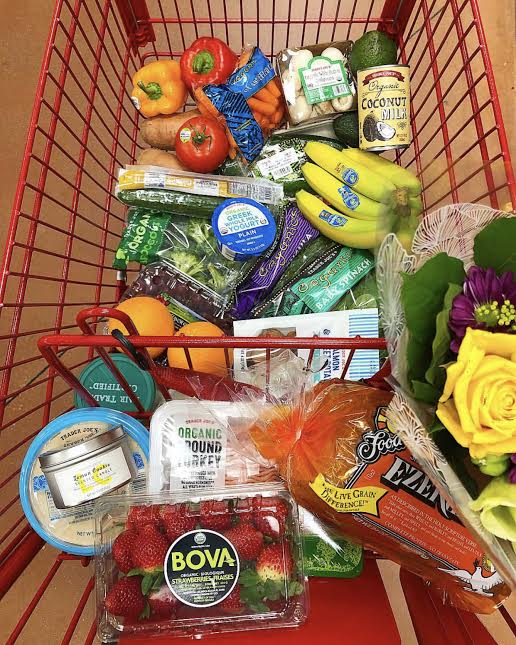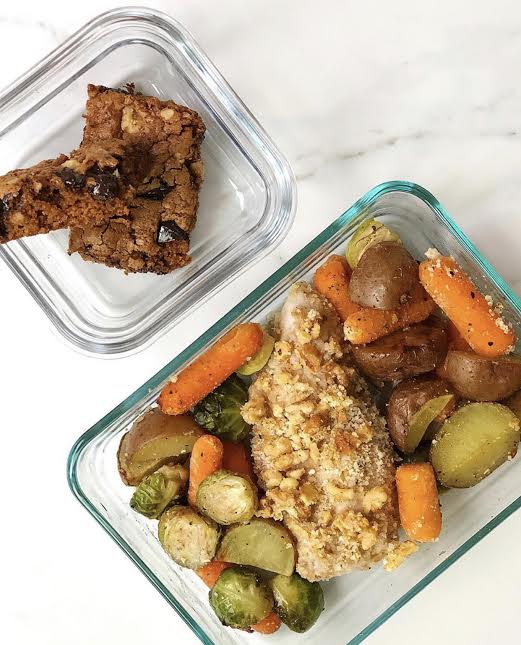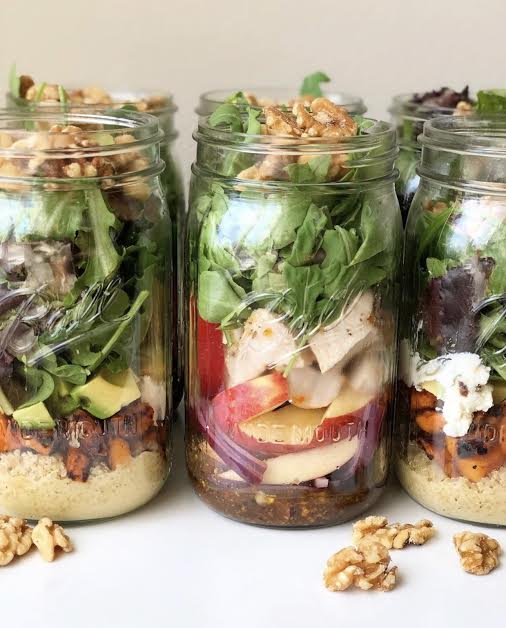
Produce:
- I like to get a variety of different colors and try new fruits/vegetables when possible – local farmers markets are great opportunities to do this.
- EWG.org puts out a list every year of the “Clean 15” (have the least pesticides, not necessary to buy organic)and “Dirty Dozen” (have the most pesticides & should buy organic as much as possible)
Eggs:
- Vital Farms pasture-raised are my favorite, but I sometimes buy organic eggs too.
- Here is a little more information about what different egg labels mean!
- Pastured-raised: hens are required to have at least 108 sq feet of space to roam, and spend most of their day outside on fresh pastures
- Organic: hens are fed only organic feed, have access to the outdoors & have not been given antibiotics or hormones.
- Free-range: hens have some access to the outdoors, but may or may not actually go outside.
- Cage-free: hens do not live in cages, but there is no rule on how much space they need
- Fun fact: there is no difference in quality or taste of white vs. brown eggs!
Bread:
- These are a few of my personal favorites, and why! I haven’t found a gluten-free option that I love (besides sweet potato toast!)
- Ezekiel Sprouted Whole Grain Bread: during the sprouting process, proteins and carbohydrates are broken down, making it easier to digest and low glycemic!
- Sourdough (local when possible): the long fermentation process helps to breakdown the gluten, making it easier to digest & a (possible) good option for those who are sensitive to gluten.
- Dave’s Killer Bread: they have several different breads that have minimal ingredients and are very tasty!
Yogurt
- I look for yogurt with very minimal ingredients (milk + live active probiotic cultures) & then add my own fruit, granola, sweetener, etc.
- Lately I’ve been buying Nancy’s Yogurt and/or Trader Joe’s Organic Whole Milk Greek Yogurt
- You can make your coconut yogurt, which I still need to try!
Meat:
- I buy organic and/or grass-fed chicken, turkey, and beef
- For fish, I look for wild-caught (I do sometimes buy the farm-raised salmon from Whole Foods because they have strict quality standards for their farm-raised fish)
Pantry staples (I’m probably forgetting some):
- Coconut Milk (I like the canned coconut milk that is only organic coconut milk & water – no fillers, gums, etc)
- Beans, quinoa & rice
- Gluten-free pasta: Banza, Jovial & Cybeles are brands I like, and Trader Joes has some great ones as well
- Nut & seed butters: Woodstock, SunButter, & TJoes Organic peanut butter – all just have one or two ingredients, nut/seed & salt
- Coconut aminos (soy sauce alternative that is soy free and has a lot less sodium per serving)
- High smoke-point oils: avocado, coconut, grapeseed
- Gluten-free flours: oat flour, almond flour, coconut flour & paleo flour mix
- Oatmeal
- Sprouted buckwheat seeds, chia seeds, hemp seeds
- Sweeteners: Coconut sugar, maple syrup, honey
- Granola: Kitchfix, Purely Elizabeth are two of my favs!
- Organic Coffee (coffee is one of the most pesticide sprayed agricultural crops, so I always try to buy organic!)
Snacks/Sweets:
- Dark chocolate
- Chomps turkey sticks
- Sometimes chips, popcorn, etc
- I don’t buy a ton, because I like to make a lot of my own snacks & sweets
Tips:
1. Have a grocery list (personally I plan our dinners, and a bulk breakfast or two, then buy extra stuff to make salads/sandwiches for lunch)
2. Ingredients: I try to get as many 1-ingredient foods as possible (ex: produce, eggs) & besides that I look for products with a short list of ingredients that I can pronounce/know what they are
- Could do a longer blog post on reading ingredients if you are interested.
More helpful tips on this blog post!









